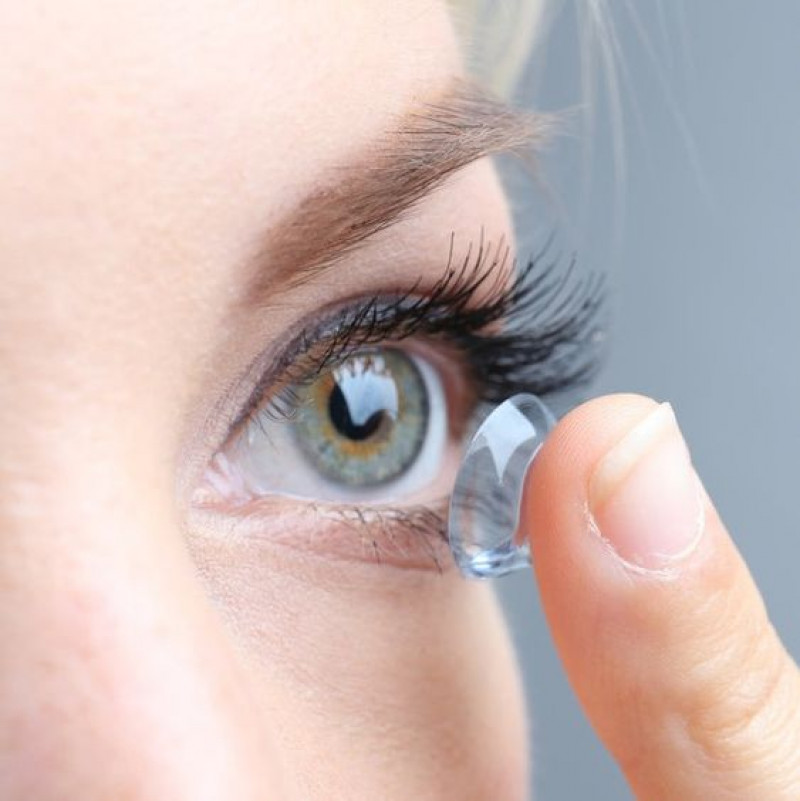
In the realm of eye care, contact lenses have been revolutionary. With the rise of purchasing contact lenses online, it has become even more convenient for users to access them. They offer an almost invisible solution to vision correction, with the convenience of not having to don eyeglasses. Yet, as with any product meant for personal use, contact lenses come with their set of precautions — one of the most important being their expiry dates. Especially in the sphere of affordable lenses, understanding and respecting these dates is crucial. Let’s understand further why.
What Exactly is the Expiry Date on Contact Lenses?
The expiry date on a contact lens pack refers to the last date until which the lenses are guaranteed to remain sterile and safe for use, provided the packaging remains unopened. This date is meticulously determined by manufacturers based on the lens material, the solution in which it's stored, and the packaging's ability to remain impermeable to bacteria and other contaminants.
Why is the Expiry Date Important?
Every product we consume, from food to medication, comes with an expiry date, and contact lenses are no exception. But what significance does this date hold for something that goes directly on our eyes?
- Sterility Assurance: The primary purpose of the expiry date is to assure sterility. Beyond this date, the integrity of the packaging or the disinfecting solution might be compromised, increasing the risk of microbial contamination.
- Lens Integrity: Contact lenses are delicate. Over time, even if unopened, lenses can undergo changes, becoming either too brittle or too soft. This can affect comfort and vision clarity.
- Solution Efficacy: The saline solution in which lenses are stored can lose its efficacy over time. Beyond the expiry date, the solution might not be as effective in keeping the lenses hydrated and free from contamination.
Dangers of Using Expired Contact Lenses

While it might be tempting to use that old pair of lenses you found tucked away in your drawer, the risks associated with using expired contacts can be more severe than you might imagine.
- Eye Infections: This is the most significant risk. An expired lens, or one stored in outdated solution, can be a breeding ground for bacteria, leading to severe eye infections.
- Reduced Vision Quality: A degraded lens might not sit well on the eye or may have imperfections, leading to blurred or distorted vision.
- Physical Discomfort: Wearing such lenses can cause discomfort, redness, itchiness, or a burning sensation.
- Allergic Reactions: Compromised or degraded lens material or solution can cause allergic reactions, ranging from mild irritation to severe conjunctivitis.
Affordable Lenses and Expiry Concerns
The world of budget contact lenses is vast, and while many offer quality at a reduced price, there are potential pitfalls:
- Shorter Shelf-Life: Sometimes, to keep costs low, affordable lenses might come with a shorter shelf-life compared to premium brands.
- Compromised Packaging: The quality of packaging can vary. Inferior packaging might become permeable to external contaminants faster.
- Inconsistent Storage Conditions: Especially when purchasing from less reputable sources, there's no guarantee that the lenses have been stored under ideal conditions, which can impact their longevity.
Tips to Ensure You're Using Fresh Contacts

Just like fresh produce ensures better health, fresh contacts guarantee optimal eye health. Here are some guidelines to make sure you're always using contacts at their prime.
- Purchase from Reputable Sources: Whether buying premium or affordable lenses, always ensure you're purchasing from a trusted source.
- Store Properly: Store your lenses in a cool, dry place, away from direct sunlight. This helps prolong their shelf life.
- Regularly Check Stock: If you buy in bulk, periodically check your stock to ensure you're not harboring expired packs.
- Follow Prescription Durations: Apart from the pack's expiry date, lenses also have a usage duration once opened – daily, bi-weekly, monthly. Stick to this duration religiously.
- Avoid Stockpiling Excessively: While buying in bulk can save money, excessive stockpiling increases the risk of having lenses expire before you get around to using them.
Conclusion
Contact lenses, while convenient, are a significant responsibility. They sit directly on your eyes, making it paramount to ensure they're in optimal condition. The expiry date is not just a manufacturer's suggestion; it's a boundary set for safety. Especially when opting for affordable lenses, which might have shorter shelf lives or compromised packaging, being vigilant about expiry dates is non-negotiable. Prioritize your eye health; the risks of neglecting such a simple precaution are too significant to ignore.

















